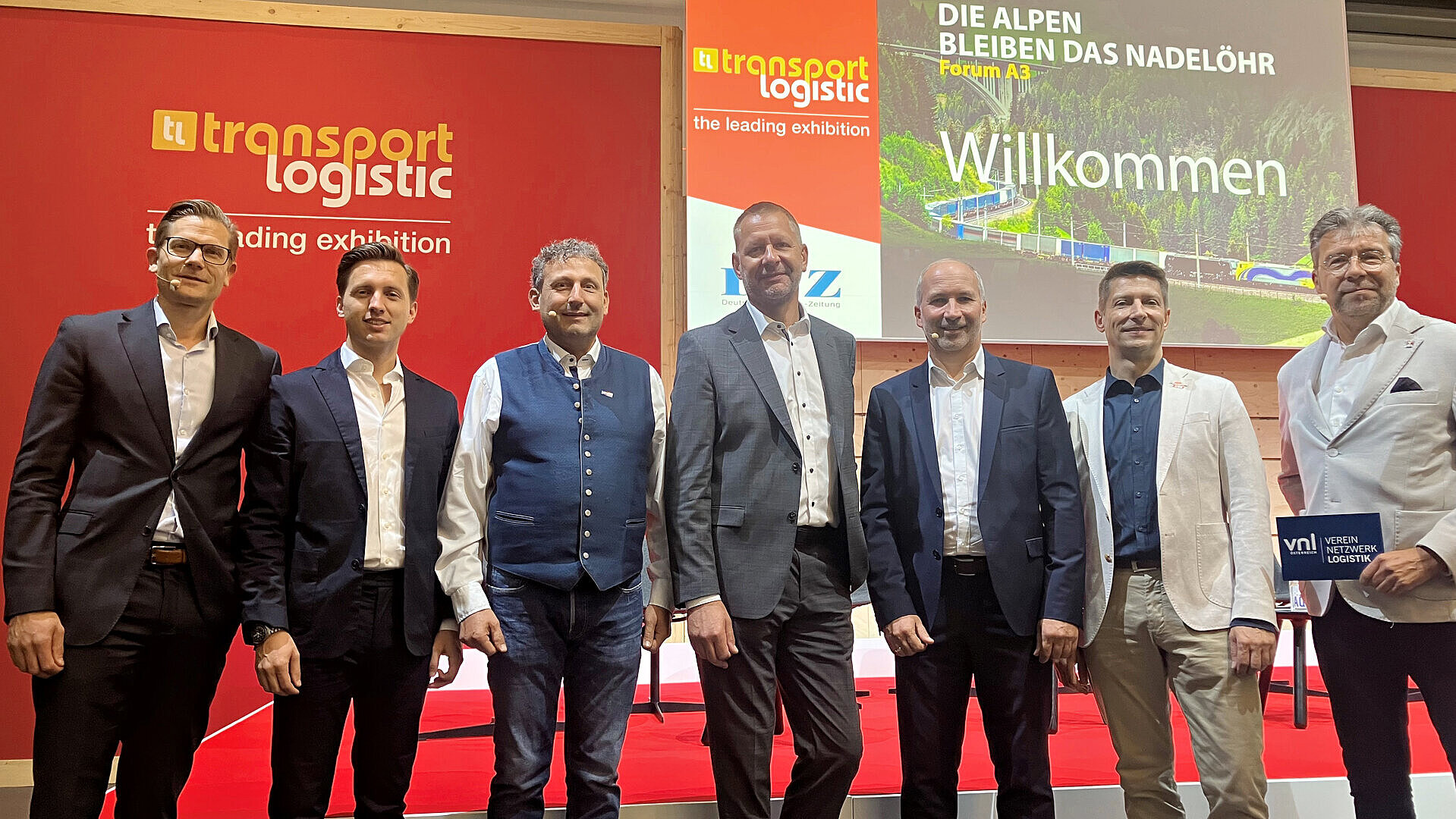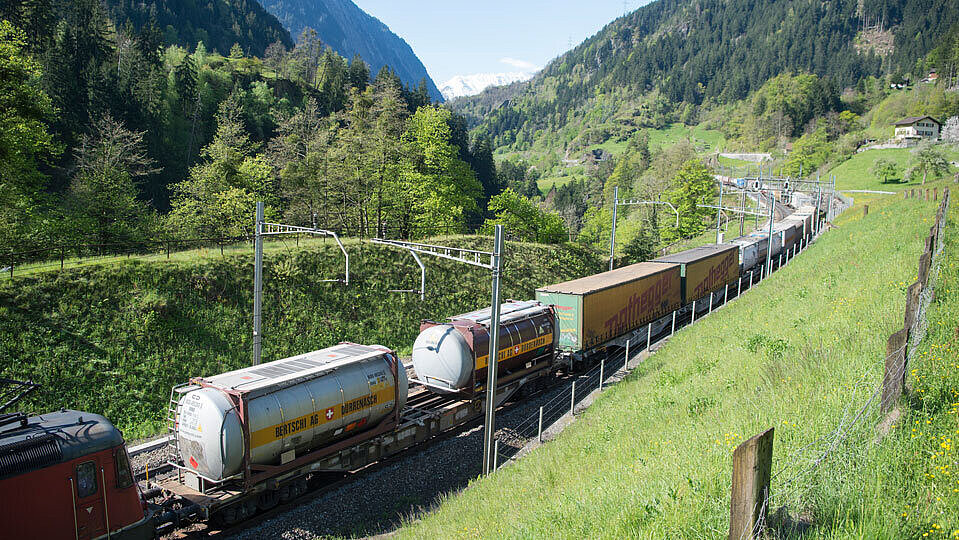
There is a threat of a return to road transport

Günther Wiesinger has his office in Kufstein, overlooking the motorway and the railway line. ‘Every day, I see convoys of trucks moving at almost walking pace,’ said the Senior Management Director at Lkw Walter. ‘And unfortunately, there are fewer freight trains on the rails than there could be,’ said Wiesinger at the event ‘The Alps remain a bottleneck: shaping the next generation of freight transport between Austria and Germany with new ideas’. The discussion panel at the trade fair was jointly organised by the Deutsche Verkehrszeitung (DVZ) and the Verein Netzwerk Logistik (VNL).
The challenges have never been as great as they are now
But Wiesinger is not only aware of the problems on the road in the literal sense. Every day, he and his colleagues have to deal with trains being cancelled at short notice, even though the goods are already waiting at the terminal. ‘The challenges have never been as great as they are now,’ said the freight forwarder. It is therefore not surprising that some of the goods are being transferred to the roads and capacities are being reduced. However, Wiesinger made it clear: ‘We at Lkw-Walter continue to believe in combined transport. We see potential in it, in the long term anyway.’
Georg Dettendorfer described the current difficult situation in Alpine transit as similarly challenging, but in more drastic terms than Wiesinger: ‘In a nutshell, the situation is catastrophic,’ said the managing director and partner of Spedition Dettendorfer. As an example, he cited the traffic jams on the Brenner motorway, which were 30 kilometres long and longer as a result of block clearance. ‘Our truck drivers are leaving us because they want to drive – not stand still,’ he said, citing the loss of time as another negative effect.
But the freight forwarder did not assess the situation on the railways any better: ‘There is currently a train standing in Kassel that we were actually expecting in Kiefersfelden today.’ As a result, his company is no longer able to deliver to its customers as planned.
The train cancellation rate is between 30 and 40 percent
Steel manufacturer Voest Alpine Stahl receives the majority of the raw materials it needs for production by rail. ‘The train cancellation rate is between 30 and 40 percent,’ said Markus Schinko, managing director of Logistik Service, a logistics subsidiary of Voest Alpine. The company's inventory is designed to ensure that production can be supplied from the warehouse for 10 to 14 days. ‘However, if the cancellation rate remains this high, we will have to react. That is very challenging,’ said Schinko.
Christoph Grasl, Chief Commercial Officer at ÖBB Rail Cargo Group (RCG), described the total closures on the rail network as the biggest challenge. ‘The diversion costs for the nine-month closure of the Tauern line alone cost RCG 12 million euros,’ said Grasl. The closure of the Regensburg-Passau corridor has been announced for next year. ‘It won't get any easier,’ said Grasl.
To improve the situation in combined transport, Dettendorfer proposed exempting trucks from tolls during pre- and post-carriage. His company is also trying to set up a charging infrastructure along the Brenner motorway. This is because electric trucks are exempt from the night-time driving ban in Tyrol and would therefore not be affected by block clearance, for example, and would also have to pay a lower toll.
Dettendorfer received support from Daniel Prutti, Head of Global Logistics Planning and Procurement at RHI Magnesita, a supplier of refractory products, systems and services based in Austria. ‘We also use electric trucks,’ says Prutti. The aim is not only to reduce emissions, but also to protect local residents from noise.
Prutti and Schinko spoke out in favour of increased cooperation. ‘This is important, not only to save costs, but also to improve overall performance,’ said Schinko. He emphasised that the risk should also be shared so that there are no winners on one side and losers on the other.
Cooperation is necessary
Grasl considers cooperation necessary to make the rail freight transport system more reliable. ‘In the past, the strategy was to do everything ourselves. That no longer works today if we want to ensure greater stability.’
Wiesinger pointed out that cooperation is common practice in combined transport. However, he also saw a need for the players to work together more closely. For example, train spaces could be offered to each other to improve capacity utilisation. (cd)


